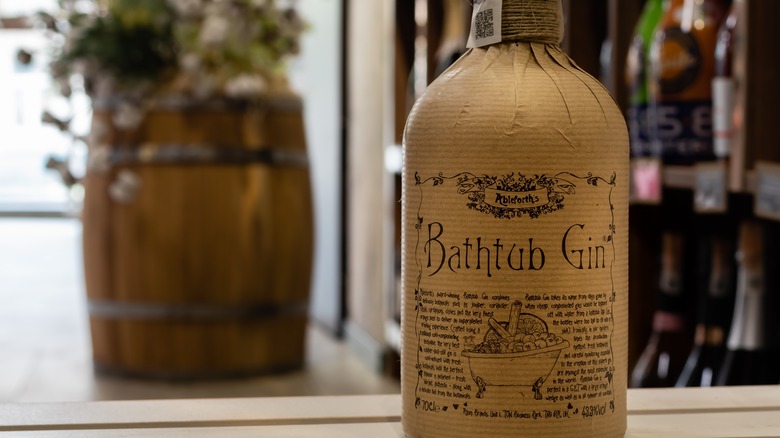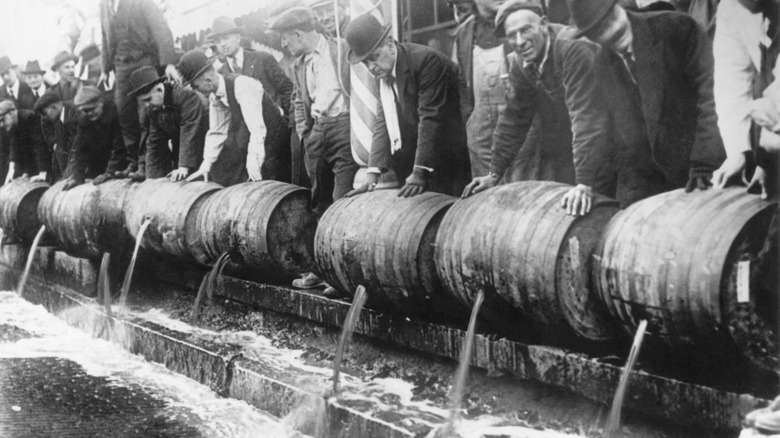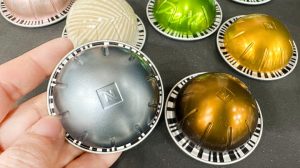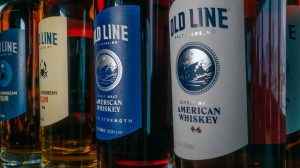While swimming in a bathtub of gin may sound like a fantasy to some drinkers or remind others of a more cringe-inducing scene out of “Saltburn,” making gin in bathtubs was a move conducted out of necessity during the Prohibition era. Though Prohibition laws aimed to reduce the sale and distribution of liquor, the effect was disastrous, and thirsty Americans figured out how to circumnavigate many of the imposed regulations. Without booze to buy, inventive citizens took it upon themselves to make alcohol at home using ingredients they could find in their kitchens. Vegetable and fruit scraps were fermented and turned into moonshine flavored with juniper oil. The homemade hooch packed a serious punch and had to be watered down to be sold.
The bottles that these thrifty Americans used to make the stuff wouldn’t always fit beneath the kitchen sink, so they turned to the larger basin area provided by a bathtub to add water to their wares. Though not all of these batches of hootch were diluted in a bathtub, the coined name was used to refer to any kind of homemade alcohol made by novices. Seizing the opportunity, entrepreneurial mobsters saw an opportunity to make money and would purchase the homemade booze to sell to underground speakeasies. Willing Americans had incentive to participate in the illegal enterprise, both as consumers and as distillers.
Necessity as the mother of invention

Many of these homemade concoctions were a bit of a gamble, however, as homemade spirits could have harmful chemicals and compounds in them. The watered-down bathtub gin didn’t exactly taste great, either, so bartenders slinging the stuff had to get creative and figure out how to make the drinks a bit more palatable. Juices, bitters, fruits, and soda were commonly added to the homemade booze. Such ingredients could help mask potentially offensive smells and flavors from the makeshift alcohol, and they kept American palates satisfied until the alcohol-restrictive laws were lifted in 1933.
Prohibition laws may have forced beverage-seeking citizens to seek out underground speakeasies, but plenty of cocktail recipes made their way through the era, regardless of laws, and cocktails made with moonshine helped give rise to other kinds of drink recipes. Though at the time, these inventive beverages may have seemed unfortunate, they helped cement the role and important of the cocktail in bar culture. As a testament to the humble and persevering impact of bathtub gin, one award-winning business in New York has taken the moniker as a brand name and now proudly markets Bathtub Gin as a way to pay homage to the once-illicit brew.







